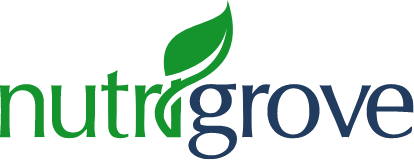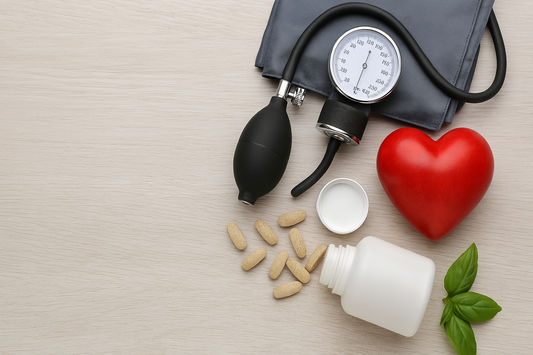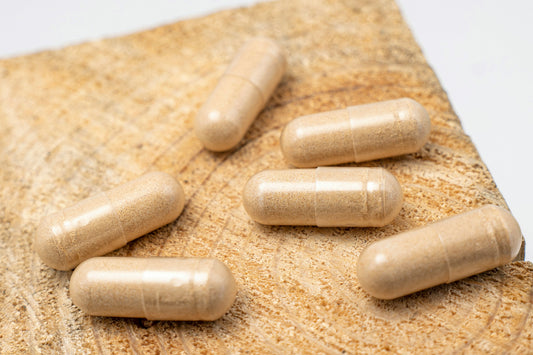What Should I Do If My Blood Pressure Is Over 160 Over 100?
If your blood pressure is over 160 over 100, it is considered high blood pressure and requires immediate attention. High blood pressure, also known as hypertension, can have serious implications for your health, increasing the risk of stroke, heart disease, heart attack, and kidney failure. It is crucial to monitor your blood pressure regularly and take necessary actions to manage it effectively.

Key Takeaways:
- High blood pressure is a medical condition characterized by readings above 160 over 100.
- Untreated high blood pressure can lead to severe health complications, including heart disease and stroke.
- Monitor your blood pressure regularly and seek immediate medical attention if it exceeds 160 over 100.
- Lifestyle changes, such as adopting a healthy diet, exercising regularly, and reducing stress, can help manage high blood pressure.
- Consult a healthcare professional for proper guidance and treatment for high blood pressure.
Understanding the dangers of high blood pressure
High blood pressure can significantly increase the risk of serious health complications, including stroke, heart attack, and kidney failure. Also known as hypertension, high blood pressure is a condition characterized by elevated levels of pressure in the arteries. Over time, this increased pressure can damage blood vessels and vital organs, leading to life-threatening conditions.
When left untreated, high blood pressure can cause the arteries to become narrow and stiff, limiting the flow of blood and oxygen to the heart, brain, and other organs. This restricted blood flow can result in various health problems, including:
- Stroke: A sudden interruption in the blood supply to the brain, often caused by a blood clot or a rupture in a blood vessel.
- Heart attack: A condition that occurs when the blood supply to the heart muscle is blocked, usually by a blood clot, leading to the death of heart tissue.
- Kidney failure: A condition where the kidneys are unable to remove waste products and excess fluid from the body, resulting in a buildup of toxins and fluid retention.
To illustrate the significance of these dangers, consider the following statistics:
| Danger | Statistics |
|---|---|
| Stroke | High blood pressure is the leading cause of stroke, accounting for more than 50% of all stroke cases. |
| Heart attack | Approximately 70% of people who experience their first heart attack have high blood pressure. |
| Kidney failure | High blood pressure is responsible for around 25% of all cases of chronic kidney disease. |
Given the serious implications of high blood pressure, it is crucial to prioritize its management and seek appropriate treatment. In the next sections, we will explore the diagnosis, causes, symptoms, and treatment options for high blood pressure, providing you with the necessary knowledge to take control of your health.
Diagnosing High Blood Pressure
High blood pressure is diagnosed using a blood pressure monitor, which provides two numbers: the systolic and diastolic readings. The systolic reading measures the peak blood pressure when the heart is squeezing blood out, while the diastolic reading measures the pressure when the heart is filling with blood. These numbers are essential in determining your blood pressure level and evaluating your risk for complications.
When measuring blood pressure, it is important to follow proper procedure to obtain accurate readings. The American Heart Association recommends sitting quietly for at least five minutes before the measurement, with your feet flat on the floor and your arm supported at heart level. The cuff of the blood pressure monitor should be placed snugly around your upper arm, and the device should be properly calibrated.
Once the reading is complete, your healthcare provider will interpret the systolic and diastolic numbers to determine your blood pressure category. Normal blood pressure is generally considered to be around 120 over 80, but higher readings may indicate prehypertension or hypertension. If your blood pressure consistently measures 160 over 100 or higher, it is categorized as stage 2 high blood pressure, indicating a need for immediate medical attention.
Regular blood pressure checks are crucial for early detection and management of high blood pressure. Self-monitoring at home with a reliable blood pressure cuff can also provide valuable information to your healthcare provider. By tracking your blood pressure levels over time, you and your healthcare team can develop an effective treatment plan to manage your high blood pressure and reduce your risk of complications.

| Blood Pressure Category | Systolic Reading | Diastolic Reading |
|---|---|---|
| Normal | Less than 120 | Less than 80 |
| Prehypertension | 120-139 | 80-89 |
| Stage 1 High Blood Pressure | 140-159 | 90-99 |
| Stage 2 High Blood Pressure | 160 or higher | 100 or higher |
Causes and Risk Factors of High Blood Pressure
High blood pressure can be caused by factors such as an unhealthy diet, chronic conditions, family history, lack of physical activity, and more. A diet high in salt, fat, and cholesterol can contribute to the development of high blood pressure. This is because excessive salt intake can disrupt the balance of fluids in the body, leading to an increase in blood pressure. Similarly, a diet high in saturated and trans fats can cause cholesterol buildup in the arteries, narrowing them and increasing blood pressure.
Chronic conditions such as kidney problems and diabetes can also play a role in the development of high blood pressure. These conditions can affect the function of the kidneys, which play a crucial role in regulating blood pressure. Family history is another significant risk factor for high blood pressure. If your parents or close relatives have high blood pressure, you may be more likely to develop it as well.
Lack of physical activity is a major contributor to high blood pressure. Regular exercise helps to strengthen the heart and improve blood circulation, which can help lower blood pressure. Being overweight or obese puts additional strain on the heart and blood vessels, leading to increased blood pressure. Race is also a factor, as non-Hispanic black people are more likely to have high blood pressure compared to other racial groups.
Stress and tobacco use or excessive alcohol consumption can also increase the risk of developing high blood pressure. Stress can cause temporary spikes in blood pressure, and if experienced chronically, it can contribute to long-term hypertension. Tobacco use and excessive alcohol consumption can damage blood vessels and disrupt the normal functioning of the cardiovascular system, leading to high blood pressure.
Dietary Factors
An unhealthy diet is a significant risk factor for high blood pressure. Consuming high amounts of sodium (salt) can cause water retention, increase blood volume, and raise blood pressure. Foods high in saturated fats and cholesterol can contribute to the buildup of plaque in the arteries, narrowing them and increasing blood pressure. On the other hand, a diet rich in fruits, vegetables, whole grains, lean proteins, and low-fat dairy products can help lower blood pressure and support overall heart health.
To maintain a healthy diet and reduce the risk of high blood pressure, it is recommended to:
- Limit salt intake to less than 2,300 milligrams per day (or 1,500 milligrams for individuals with high blood pressure or at risk for it).
- Choose whole, unprocessed foods over processed and packaged ones.
- Avoid or limit the consumption of foods high in saturated fats, trans fats, and cholesterol.
- Increase the intake of potassium-rich foods like bananas, oranges, potatoes, and leafy greens, as potassium helps lower blood pressure.
- Limit alcohol consumption to moderate levels (up to one drink per day for women and up to two drinks per day for men).
Incorporating these dietary changes can help reduce the risk of high blood pressure and promote overall heart health.
Chronic Conditions
Various chronic conditions can contribute to the development of high blood pressure. Some of the common conditions associated with hypertension include:
| Chronic Condition | Description |
|---|---|
| Kidney Problems | The kidneys play a vital role in regulating blood pressure by controlling the balance of fluids and electrolytes in the body. If the kidneys are not functioning properly, it can lead to high blood pressure. |
| Diabetes | Diabetes can damage blood vessels and affect the body's ability to regulate blood sugar levels. Over time, this can lead to high blood pressure. |
| Obstructive Sleep Apnea | Obstructive sleep apnea is a sleep disorder characterized by interrupted breathing during sleep. It has been linked to high blood pressure, as the frequent interruptions in breathing can lead to increased blood pressure levels. |
| Thyroid Problems | An overactive or underactive thyroid gland can disrupt the hormonal balance in the body, potentially leading to high blood pressure. |
If you have any of these chronic conditions, it is essential to work with your healthcare provider to manage and treat them effectively, as it can help lower the risk of high blood pressure and its associated complications.
Understanding the causes and risk factors of high blood pressure is crucial for taking proactive steps towards prevention and management. By adopting a healthy lifestyle, managing chronic conditions, and seeking appropriate medical guidance, it is possible to reduce the risk of high blood pressure and lead a heart-healthy life.
Symptoms of High Blood Pressure
Many people with high blood pressure do not experience symptoms, but some may have headaches, nosebleeds, or shortness of breath when their blood pressure is dangerously high. It is essential to be aware of these symptoms and take appropriate action if you notice any of them.
"Headaches and nosebleeds can be common signs of high blood pressure. If you are experiencing these symptoms, it is important to measure your blood pressure and consult a healthcare professional."
In some cases, high blood pressure can lead to a hypertensive crisis, which is a severe increase in blood pressure that requires immediate medical attention. Symptoms of a hypertensive crisis can include severe headache, chest pain, blurry vision, nausea or vomiting, shortness of breath, and seizures. If you experience any of these symptoms, call emergency services immediately.
To better understand the symptoms of high blood pressure, here is a table summarizing the common signs:
| Symptoms | Description |
|---|---|
| Headaches | Frequent or severe headaches, especially in the morning. |
| Nosebleeds | Unexplained nosebleeds that occur frequently. |
| Shortness of Breath | Feeling breathless or having difficulty breathing. |
| Blurred Vision | Vision problems, including blurry or double vision. |
| Chest Pain | Unexplained chest pain or discomfort. |

Remember, it is crucial to monitor your blood pressure regularly, especially if you have risk factors such as family history or a sedentary lifestyle. If you experience any symptoms or are concerned about your blood pressure readings, it is important to consult a healthcare professional for guidance and appropriate treatment.
Lifestyle changes for managing high blood pressure
Making positive lifestyle changes can have a significant impact on lowering and managing high blood pressure. By adopting healthy habits, you can reduce your risk of complications and improve your overall well-being. Here are some effective lifestyle changes you can make:
- Eat a balanced diet: Opt for a diet rich in fruits, vegetables, whole grains, lean proteins, and low-fat dairy products. Avoid processed foods, excess salt, and foods high in saturated and trans fats.
- Exercise regularly: Engage in at least 30 minutes of moderate-intensity aerobic exercise, such as brisk walking or cycling, most days of the week. Physical activity helps lower blood pressure and strengthens your heart.
- Manage stress: Find healthy ways to cope with stress, such as practicing mindfulness, deep breathing exercises, or engaging in activities you enjoy. Chronic stress can contribute to high blood pressure.
- Limit alcohol intake: If you drink alcohol, do so in moderation. Men should limit their consumption to a maximum of two drinks per day, while women should limit it to one drink per day.
- Quit smoking: Smoking not only increases your blood pressure but also damages your blood vessels, making them more susceptible to plaque buildup. Quitting smoking can significantly improve your health.
Remember, these lifestyle changes should be adopted as long-term habits to effectively manage high blood pressure. Incorporate them gradually into your daily routine and seek support from healthcare professionals or support groups if needed.

| Age Group | Recommended Daily Sodium Intake |
|---|---|
| Children (1-3 years old) | 1,000 mg |
| Children (4-8 years old) | 1,200-1,500 mg |
| Children (9-13 years old) | 1,500-1,800 mg |
| Teenagers (14-18 years old) | 1,500-2,300 mg |
| Adults (19-50 years old) | 1,500-2,300 mg |
| Adults (51 years and older) | 1,200-1,500 mg |
It's important to note that these recommended sodium intake levels may vary based on individual health conditions and specific dietary needs. Consult with a healthcare professional or a registered dietitian for personalized guidance on your sodium intake.
Blood Pressure Medication and Treatment Options
In some cases, lifestyle changes alone may not be enough, and medication may be prescribed to help control high blood pressure. There are several types of blood pressure medication available, each with its own mechanisms and benefits. The most common types of medication used to treat high blood pressure include:
- Diuretics: These medications help the body eliminate excess sodium and water, reducing the volume of blood and lowering blood pressure. They are often used as a first-line treatment for high blood pressure.
- Beta-blockers: These medications block the effects of adrenaline, reducing heart rate and the force of contraction. This helps to decrease blood pressure and relieve stress on the heart.
- ACE inhibitors: These medications block the production of certain chemicals that narrow blood vessels, promoting relaxation and widening of the vessels. This leads to reduced blood pressure and improved blood flow.
Other types of blood pressure medication include angiotensin II receptor blockers (ARBs), calcium channel blockers, and alpha-blockers. The choice of medication will depend on factors such as the severity of your high blood pressure, your overall health, and any other medications you may be taking.
It's important to note that blood pressure medication should always be taken as prescribed by your healthcare provider. Stopping medication without consulting a doctor can cause your blood pressure to rise again, increasing the risk of complications. If you experience any side effects or have concerns about your medication, speak with your healthcare provider.
| Medication | Common Brand Names | Side Effects |
|---|---|---|
| Diuretics | Hydrochlorothiazide (Microzide), Chlorthalidone (Thalitone) | Frequent urination, increased thirst, electrolyte imbalances |
| Beta-blockers | Metoprolol (Lopressor), Propranolol (Inderal) | Fatigue, dizziness, slow heart rate |
| ACE inhibitors | Lisinopril (Zestril), Enalapril (Vasotec) | Cough, dizziness, low blood pressure |
In addition to medication, your healthcare provider may also recommend other treatments or lifestyle modifications to further manage your high blood pressure. It's important to follow their recommendations and work together to find a treatment plan that works best for you.

Quote:
"High blood pressure medication can be an important part of managing hypertension and reducing the risk of complications. However, it's crucial to remember that medication should be used in conjunction with healthy lifestyle choices for optimal results." - Dr. Jane Anderson, Cardiologist
Regular monitoring of your blood pressure and ongoing communication with your healthcare provider are crucial for effective management of high blood pressure. By staying informed about your condition and following the recommended treatment plan, you can take control of your health and reduce the risks associated with high blood pressure.
NutriGrove Blood Pressure Supplement for Lowering Blood Pressure
NutriGrove Blood Pressure Supplement is a great addition to a daily routine for those looking to naturally lower their blood pressure. With its blend of carefully selected ingredients, this supplement supports cardiovascular health and helps maintain healthy blood pressure levels.
The powerful combination of nutrients in NutriGrove Blood Pressure Supplement includes key ingredients such as hawthorn extract, garlic, and olive leaf extract. These natural ingredients have been used for centuries to support heart health and promote healthy blood pressure. By incorporating NutriGrove Blood Pressure Supplement into your daily routine, you can take a proactive approach to managing your blood pressure naturally.
Regular use of NutriGrove Blood Pressure Supplement can provide numerous benefits for those with high blood pressure. This supplement helps to relax blood vessels, improving blood flow and reducing the strain on the heart. It also supports healthy cholesterol levels and provides antioxidant protection to maintain overall cardiovascular health.
When combined with a healthy lifestyle, including a balanced diet, regular exercise, and stress management, NutriGrove Blood Pressure Supplement can help you achieve and maintain healthy blood pressure levels. It is important to note that while this supplement can be a valuable tool in managing high blood pressure, it should not replace prescribed medication or medical advice. Always consult with your healthcare professional before making any changes to your treatment plan.

| Key Benefits of NutriGrove Blood Pressure Supplement: |
|---|
| Supports cardiovascular health |
| Helps maintain healthy blood pressure levels |
| Relaxes blood vessels for improved blood flow |
| Supports healthy cholesterol levels |
| Provides antioxidant protection for overall cardiovascular health |
By incorporating NutriGrove Blood Pressure Supplement into your daily routine, you can take a proactive step towards managing your blood pressure naturally and promoting a healthy heart.
Customer Testimonial:
"I've been taking NutriGrove Blood Pressure Supplement for the past six months, and I've noticed a significant improvement in my blood pressure readings. It's reassuring to know that I'm supporting my heart health with natural ingredients. I highly recommend this supplement to anyone looking to maintain healthy blood pressure levels."
Monitoring and Managing High Blood Pressure
Living with high blood pressure requires consistent monitoring, healthy lifestyle choices, and adherence to recommended treatments. It is important to regularly monitor your blood pressure levels, either at home with a blood pressure monitor or during check-ups with your healthcare provider. This allows you to track any changes in your blood pressure and ensure it is properly managed.
One effective way to monitor your blood pressure at home is by using a reliable and accurate blood pressure monitor. These devices are easy to use and provide a convenient way to keep track of your readings. It is important to follow the instructions provided with the monitor and take your blood pressure measurements at the same time each day for consistent results.
In addition to monitoring your blood pressure, it is crucial to make healthy lifestyle choices. This includes maintaining a balanced diet that is low in sodium, saturated fats, and cholesterol. Incorporate plenty of fruits, vegetables, whole grains, and lean proteins into your meals. Regular physical activity is also essential for managing high blood pressure. Aim for at least 30 minutes of moderate-intensity exercise most days of the week.
Consult with your healthcare provider to determine the most suitable treatment plan for your high blood pressure. This may include medication to help lower your blood pressure if lifestyle changes alone are not enough. It is important to take any prescribed medication as directed, and not to stop taking it without consulting your doctor.
| Tips for Managing High Blood Pressure |
|---|
| Monitor your blood pressure regularly. |
| Eat a balanced diet low in sodium, saturated fats, and cholesterol. |
| Engage in regular physical activity. |
| Take prescribed medication as directed. |
| Reduce stress and practice relaxation techniques. |
| Avoid smoking and limit alcohol intake. |
| Keep regular appointments with your healthcare provider. |
Quote:
We can control high blood pressure through consistent monitoring, healthy lifestyle choices, and appropriate treatment. It's important to stay proactive and take steps to manage our blood pressure effectively.
By staying vigilant about monitoring your blood pressure, making positive changes to your lifestyle, and following your healthcare provider's guidance, you can effectively manage high blood pressure and reduce the risk of complications. Remember, it's never too late to start prioritizing your heart health and taking proactive steps towards a healthier future.

With the right combination of monitoring, healthy habits, and medical guidance, you can successfully manage high blood pressure and lead a fulfilling life.
Preventing Complications and Maintaining a Healthy Lifestyle
Taking proactive measures to prevent complications and lead a healthy lifestyle is crucial for individuals with high blood pressure. By making certain lifestyle changes, you can effectively manage your blood pressure and reduce the risk of serious health complications. Here are some practical steps you can take:1. Eat a Heart-Healthy Diet:
Focus on consuming a diet rich in fruits, vegetables, whole grains, lean proteins, and low-fat dairy products. Avoid foods high in sodium, saturated fats, and cholesterol. Incorporate foods that are known to help lower blood pressure, such as leafy greens, berries, and foods rich in potassium.2. Engage in Regular Physical Activity:
Make exercise a part of your daily routine. Aim for at least 30 minutes of moderate-intensity aerobic exercise, such as brisk walking, swimming, or cycling, most days of the week. Regular physical activity can help lower blood pressure and improve overall cardiovascular health.3. Manage Stress:
Stress can contribute to high blood pressure, so it's important to find healthy ways to manage stress levels. Consider practicing relaxation techniques like deep breathing exercises, meditation, yoga, or engaging in activities you enjoy, such as hobbies or spending time with loved ones.4. Limit Sodium and Alcohol Intake:
Excessive sodium intake can cause your blood pressure to rise. Limit your consumption of processed and packaged foods, as these tend to be high in sodium. Additionally, alcohol can raise blood pressure, so it's recommended to limit your intake or avoid it altogether.5. Maintain a Healthy Weight:
If you are overweight or obese, losing even a modest amount of weight can help lower blood pressure. Focus on adopting a balanced and sustainable eating plan that promotes weight loss and consult with a healthcare professional or registered dietitian for personalized guidance.6. Quit Smoking:
Smoking damages blood vessels, contributes to the development of high blood pressure, and increases the risk of heart disease. Quitting smoking is one of the most effective ways to improve your overall health and lower your blood pressure. Taking these proactive steps can significantly impact your blood pressure levels and overall health. Remember, it's essential to work closely with your healthcare provider to develop a personalized treatment plan that meets your specific needs. By maintaining a healthy lifestyle and following medical advice, you can effectively manage high blood pressure and reduce the risk of complications.

Additional Heart Healthy Resources:
- Does Olive Leaf Lower Blood Pressure?
- Can You Reverse High Blood Pressure?
- What Brings Down Blood Pressure Naturally?
- How Long Should I Water Fast to Lower Blood Pressure?
- What Brings Down Blood Pressure Naturally?
- Can Lack of Sleep Cause High Blood Pressure?
- What are the 5 warning signs for stroke?
- What blood pressure is too high?
- Does Garlic Lower Blood Pressure
- Natural Guide for Effective Blood Pressure Support
- Does Hibiscus Flower Lower Blood Pressure?
Seeking Professional Guidance for High Blood Pressure
If you have concerns about high blood pressure or your blood pressure readings, it is essential to seek professional advice and guidance. High blood pressure, or hypertension, can have serious health implications if left untreated. Consulting with a healthcare professional will help you understand your condition better and develop an appropriate treatment plan.
When you consult a healthcare professional, they will assess your blood pressure readings, medical history, and lifestyle factors to determine the best course of action. They may recommend lifestyle changes such as adopting a healthy diet, increasing physical activity, quitting smoking, and managing stress. In some cases, medication may be prescribed to help lower your blood pressure.
Regular check-ups with a healthcare provider are crucial for monitoring your blood pressure levels and adjusting your treatment plan as needed. By working closely with a professional, you can track your progress, address any concerns you may have, and ensure that your blood pressure is well-managed.
| Benefits of Seeking Professional Guidance |
|---|
| Receive a comprehensive evaluation of your blood pressure levels |
| Get personalized recommendations for lifestyle changes and medication |
| Access to ongoing monitoring and support |
| Reduce the risk of complications associated with high blood pressure |
Remember, managing high blood pressure requires a multidimensional approach that combines lifestyle modifications, regular monitoring, and appropriate medical intervention. Seeking professional guidance ensures that you receive the necessary support and expertise to effectively manage your condition and protect your long-term health.

Managing high blood pressure requires a combination of lifestyle changes, medication, and regular monitoring to reduce the risk of complications. If your blood pressure is over 160 over 100, it is considered high blood pressure, which can increase your risk of stroke, heart disease, heart attack, and kidney failure. It is important to have your blood pressure checked regularly to monitor your levels and take necessary actions.
There are two types of high blood pressure: primary hypertension, which has no known cause and is often a result of lifestyle factors, and secondary hypertension, which is caused by an underlying health problem or medication. Most people with high blood pressure do not have symptoms, which is why it is often called the "silent killer." However, some people may experience symptoms such as headaches, nosebleeds, or shortness of breath when their blood pressure reaches dangerously high levels.
Various factors can contribute to high blood pressure, including a diet high in salt, fat, and cholesterol, chronic conditions like kidney problems and diabetes, family history, lack of physical activity, being overweight or obese, race (non-Hispanic black people are more likely to have high blood pressure), stress, and tobacco use or excessive alcohol consumption.
The goal of high blood pressure treatment is to reduce your blood pressure to normal levels. Lifestyle changes are usually the first step, such as losing weight, quitting smoking, eating a healthy diet, exercising, reducing salt intake, lowering alcohol consumption, and learning relaxation methods. If your high blood pressure is caused by an underlying disease or medication, talk to your doctor to determine the appropriate treatment. Regular check-ups with a healthcare provider are essential for monitoring blood pressure levels and adjusting treatment as needed.
If you have concerns about high blood pressure or your blood pressure readings, consult a healthcare professional for guidance and appropriate treatment.
FAQ
What should I do if my blood pressure is over 160 over 100?
If your blood pressure is over 160 over 100, it is considered high blood pressure. It is important to seek appropriate medical advice and take necessary actions to manage your condition.
Understanding the dangers of high blood pressure
High blood pressure can increase your risk of stroke, heart disease, heart attack, and kidney failure. It is important to understand the potential dangers and complications associated with this condition and seek appropriate treatment.
Diagnosing high blood pressure
High blood pressure is diagnosed with a blood pressure monitor, which provides two numbers: the systolic reading and the diastolic reading. It is important to monitor your blood pressure regularly to determine if it falls within a healthy range.
Causes and risk factors of high blood pressure
Various factors can contribute to high blood pressure, including diet, chronic conditions, family history, lack of physical activity, overweight or obesity, race, stress, and tobacco use or excessive alcohol consumption. It is important to be aware of these risk factors and take steps to manage them.
Symptoms of high blood pressure
Most people with high blood pressure do not have symptoms, but some may experience symptoms such as headaches, nosebleeds, or shortness of breath when their blood pressure reaches dangerously high levels. It is important to be aware of these symptoms and seek medical attention if necessary.
Lifestyle changes for managing high blood pressure
If your high blood pressure is caused by lifestyle factors, there are steps you can take to reduce your risk, such as losing weight, quitting smoking, eating a healthy diet, exercising, reducing salt intake, lowering alcohol consumption, and learning relaxation methods. These lifestyle changes can help manage high blood pressure and reduce the risk of complications.
Blood pressure medication and treatment options
If lifestyle changes are not enough to manage high blood pressure, medication may be prescribed. It is important to take prescribed medication regularly and not stop taking it without consulting a doctor. There are various medication and treatment options available, and it is essential to work with a healthcare professional to determine the most appropriate treatment plan.
Monitoring and managing high blood pressure
Living with high blood pressure requires ongoing monitoring, including regular blood pressure checks either at the doctor's office or at home. It is also important to maintain a healthy lifestyle, manage weight, make healthy food choices, exercise regularly, cope with stress, avoid smoking, limit alcohol intake, and take prescribed medication as directed.
Preventing complications and maintaining a healthy lifestyle
Preventing complications associated with high blood pressure requires adherence to a healthy lifestyle, including regular exercise, a balanced diet, stress management, and avoiding tobacco and excessive alcohol consumption. It is important to prioritize self-care and make proactive choices to reduce the risk of heart disease, heart failure, and stroke.
Seeking professional guidance for high blood pressure
If you have concerns about high blood pressure or your blood pressure readings, it is important to consult a healthcare professional for guidance and appropriate treatment. They can provide personalized advice, monitor your blood pressure, and adjust your treatment plan as needed.





